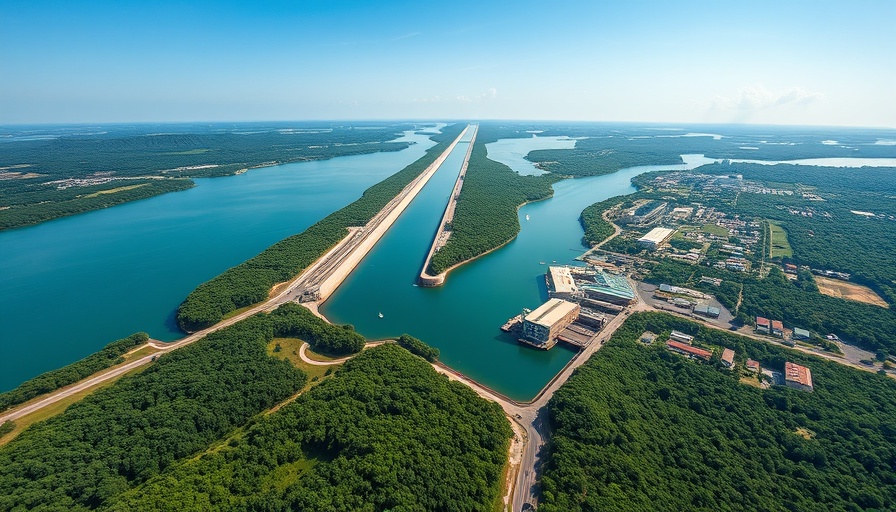
BlackRock's Ambitious Move into Global Shipping
In a bold maneuver that reverberates through the shipping industry, BlackRock has positioned itself at the forefront of global maritime commerce. Recently, this financial powerhouse revealed its strategy to acquire two crucial ports in Panama, pivotal for shipping routes that connect the Atlantic and Pacific Oceans. This move isn't just about ports; it's part of a larger $23 billion deal involving more than 40 ports worldwide. It underscores the growing influence of financial firms in traditional industries, blurring the lines between finance and maritime operations.
The Panama Canal: A Historical Perspective
The Panama Canal, inaugurated in 1914, served as a monumental achievement of engineering and diplomacy, allowing vessels to traverse Central America and significantly shortening voyages. However, in recent months, tensions surrounding its sovereignty emerged when former President Trump suggested that Panama was misusing its ownership. This political maneuvering came at a time when BlackRock sought to extend its dominion in global shipping, raising eyebrows about the integration of politics and corporate interests.
How This Acquisition Alters Shipping Dynamics
BlackRock's acquisition of these ports can redefine trade routes and shipping logistics. By controlling network choke points, they can exert considerable influence over shipping costs and operational efficiencies. This shift is reflective of a broader trend where financial institutions are becoming reluctant champions of traditional industries, intending to maximize shareholder value while reshaping market dynamics.
Future Predictions: What Lies Ahead for Maritime Trade?
Experts suggest that this acquisition could signal a wave of investments in maritime technology and digital solutions aimed at enhancing port efficiency. As the global shipping industry grapples with challenges stemming from supply chain disruptions and environmental regulations, blending advanced technologies such as AI and blockchain could empower players like BlackRock to lead this evolution, marking a new chapter in how goods are transported across the globe.
Counterarguments: The Risks and Challenges of Corporate Control
While the acquisition positions BlackRock as a dominant player in shipping, it is not without risks. Critics argue that this corporate takeover may marginalize local stakeholders in Panama, raising concerns about impacts on the economy and employment in the region. As BlackRock and similar entities increasingly invest in critical infrastructure, the question arises: at what cost does such investment come to local communities?
Final Thoughts: Corporate Influence in Global Shipping
The events surrounding BlackRock's acquisition of Panama’s ports symbolize a tension between the rise of corporate power and the sovereignty of nations. As the shipping industry evolves, with new technological advancements emerging rapidly, stakeholders must navigate the complexities introduced by such mega-deals. It is crucial now more than ever for local voices to be considered in discussions surrounding such impactful economic decisions to foster a balance between profit and public welfare.
This pivotal acquisition exemplifies the converging paths of finance and global trade, urging us to reflect on the sustainable development of the maritime sector and the responsibilities of corporate giants. The future of shipping will undoubtedly change, but it will require a collaborative framework that includes voices from marginalized communities to achieve a truly equitable and thriving industry.
 Add Row
Add Row  Add
Add 




Write A Comment